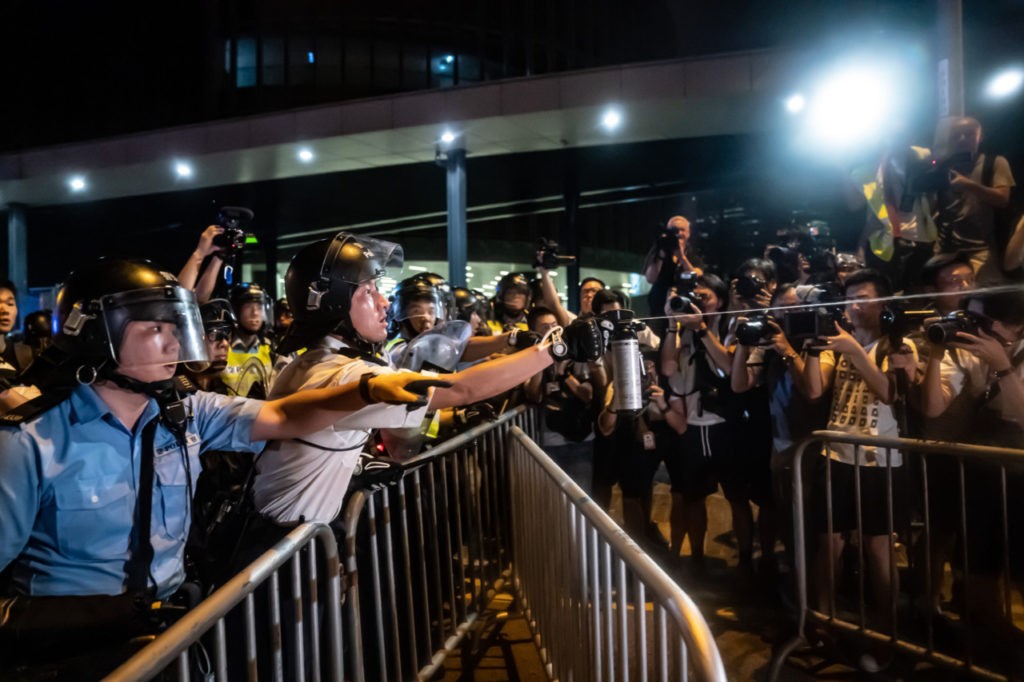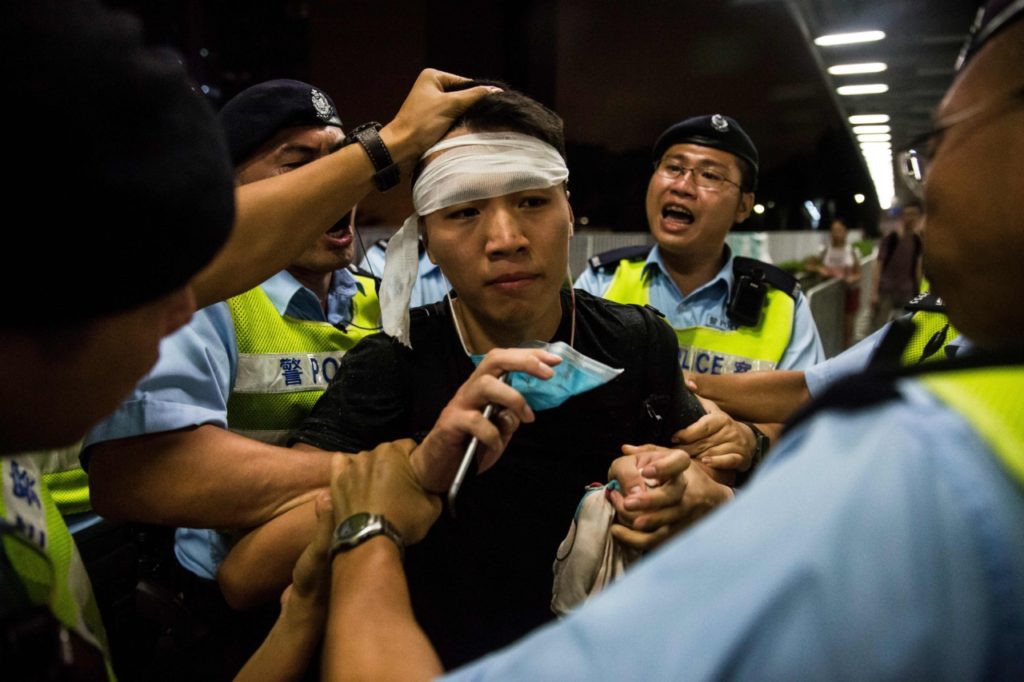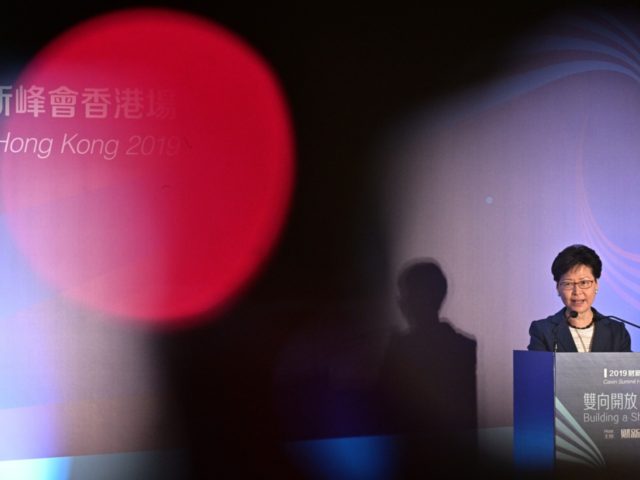Hong Kong’s government will push ahead with new extradition laws despite massive protests Sunday that convulsed the former British dependent territory.
Striking a defiant tone Monday after the city’s largest protest since the 1997 UK handover, chief executive Carrie Lam said the legislature would debate the bill on Wednesday as planned, rejecting protests that highlighted fears about Beijing’s’s growing hold over the semi-autonomous region.
In her first comments since the mass rallies, Lam said she saw no reason to change direction on a bill that would allow extraditions to the Chinese mainland.

Protesters clash with police after a rally against the extradition law proposal at the Central Government Complex on June 10, 2019 in Hong Kong. Organizers say more than a million protesters marched on Sunday against a bill that would allow suspected criminals to be sent to mainland China for trial as tensions have escalated in recent weeks. (Anthony Kwan/Getty Images)
She denied ignoring the huge public backlash and said her administration had already made major concessions to ensure the city’s unique freedoms would be protected and that human rights safeguards met international standards.
“I and my team have not ignored any views expressed on this very important piece of legislation. We have been listening and listening very attentively,” she said.
“I’ve not received any instructions or mandate from Beijing to do this bill,” she added.
THIS IS MORE THAN 1 MILLION PEOPLE MARCHING!
Say no to extradition to China! Proud to be HongKonger!#HongKong pic.twitter.com/wBCOlLPsQs— Nathan Law 羅冠聰 (@nathanlawkc) June 9, 2019
As Breitbart News reported, Hong Kong’s streets were flooded with tens of thousands of protesters Sunday, angry at the proposed extradition law allowing suspects to be sent to China for trial.
Under the 50-year handover deal with the British, China agreed to a “one country, two systems” model where Hong Kong would keep freedom of speech and assembly rights that are unheard of on the authoritarian mainland. This deal included a judiciary independent of Beijing.
Human rights groups, legal alliances, and numerous governments argue that agreement will be betrayed under the planned legislation.

A protester is arrested after a rally against a controversial extradition law proposal in Hong Kong on June 10, 2019. ( ISAAC LAWRENCE/AFP/Getty Images)
The U.S. Secretary of State, Mike Pompeo, warned it could damage the rule of law in Hong Kong, and a bipartisan congressional committee urged Lam’s administration to listen to the widespread concerns, saying local and foreign residents in Hong Kong had to be protected “from a criminal justice system in mainland China that is regularly employed as a tool of repression”.
Protest leaders said they planned to respond to Lam’s comments later on Monday but they had previously said they would “escalate actions”.
Senior Chinese party leaders have spoken out in support of the extradition bill but so far Beijing has remained silent on Sunday’s huge rally.
AFP contributed to this story

COMMENTS
Please let us know if you're having issues with commenting.